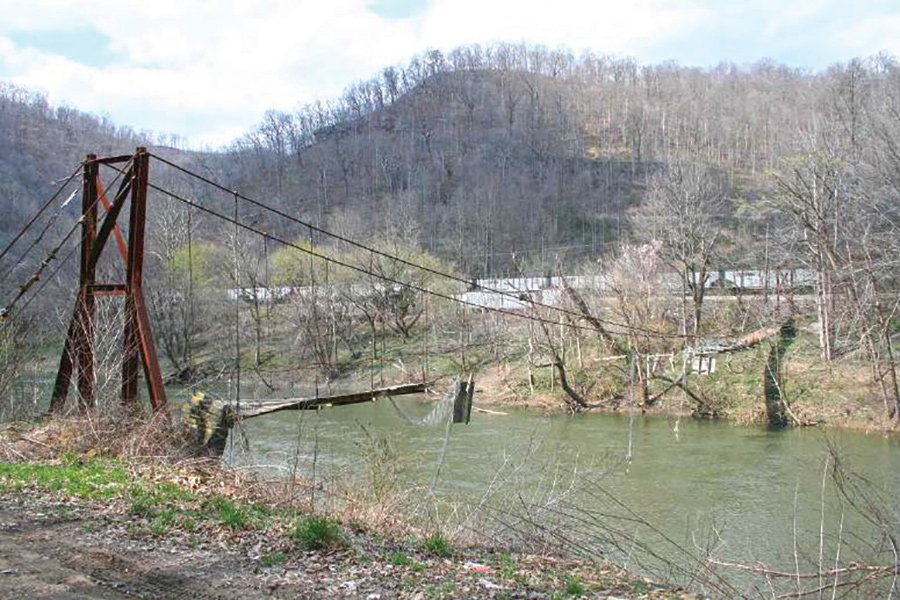1srelluc
Diamond Member

Curios: The Bridge the Soviets Nearly Built On the West Virginia-Kentucky Border
In the 1970s, the tiny West Virginia community of Vulcan became so desperate for a crossing into Kentucky that they reached out to Russia.
The tiny West Virginia community of Vulcan sits on Mingo County’s border with Kentucky, surrounded by mountains on three sides and the Tug River on the other. Once Vulcan was a booming coal town, but its real claim to fame is the bridge linking it to the outside world, a bridge that was almost built by the Russians to insult the U.S. some 40 years ago.
The 50 or so families of Vulcan went for nearly six years without a passable bridge—or a legal road. They had no safe way to drive out of town after the bridge that had been built by the coal company collapsed in 1974. The only way people could get in and out was to drive up the Kentucky side of the Tug and walk across a narrow swinging bridge. For years, John Robinette, Vulcan’s self-appointed mayor, pleaded with coal companies and legislators at all levels for a rebuild. They all said there was no money.
The situation was dire. Children had to crawl under parked railroad cars at the railroad’s bridge to get to school. A kid lost a leg doing that. A few motorists tried to take the railroad right of way over the river to the roads in Kentucky, but there wasn’t much room next to the live tracks. Twice, elderly couples flinched, jerked their trucks, and ended up in the river. The railroad began prosecuting anyone caught on their property.
Robinette and the town were losing patience with their government. A bartender and carnival worker who flew Old Glory over his trailer, Robinette was ready for a drastic move. In 1977, he wrote the Soviet embassy in Washington, DC, as well as officials in Communist East Germany, describing Vulcan’s plight and requesting foreign aid for a bridge.
The Soviets savored the opportunity to embarrass the U.S. and dispatched a journalist, Iona Andronov, to Vulcan. Andronov said the Soviets would fund the bridge if the American government did not.
By witnessing and broadcasting the locals’ woes, the Soviet journalist finally brought attention to the ignored community. Within hours of Andronov’s visit on Dec. 16, 1977, word came down from Gov. Jay Rockefeller that West Virginia was working with Kentucky to build a new bridge.
Newspapers across the nation were talking about Vulcan’s appeal to the Kremlin. Some fervent anti-communists were not amused. Local newspapers and radio stations in West Virginia received threats that any bridge built with Red aid would be blown up.
But Rockefeller kept his promise. Two years later, on July 4, 1980, the 300-ft bridge was dedicated. It had cost over $1 million, the costs split between Kentucky and West Virginia. According to news reports, Vulcan residents celebrated with illegally imported Russian vodka and the American flag hung high.
Those were the beginnings of the really bad times anywhere in the Rust/Coal Belt and especially in WV. which is usually economically depressed compared to the rest of the country anyway.
The town had a valid point and apparently had to look overseas for help. I don't blame Russia for jumping on this, it would have been awesome propaganda for them.
WV got politically embarrassed enough to do something and in the end it makes for an amusing bit of cold war history.